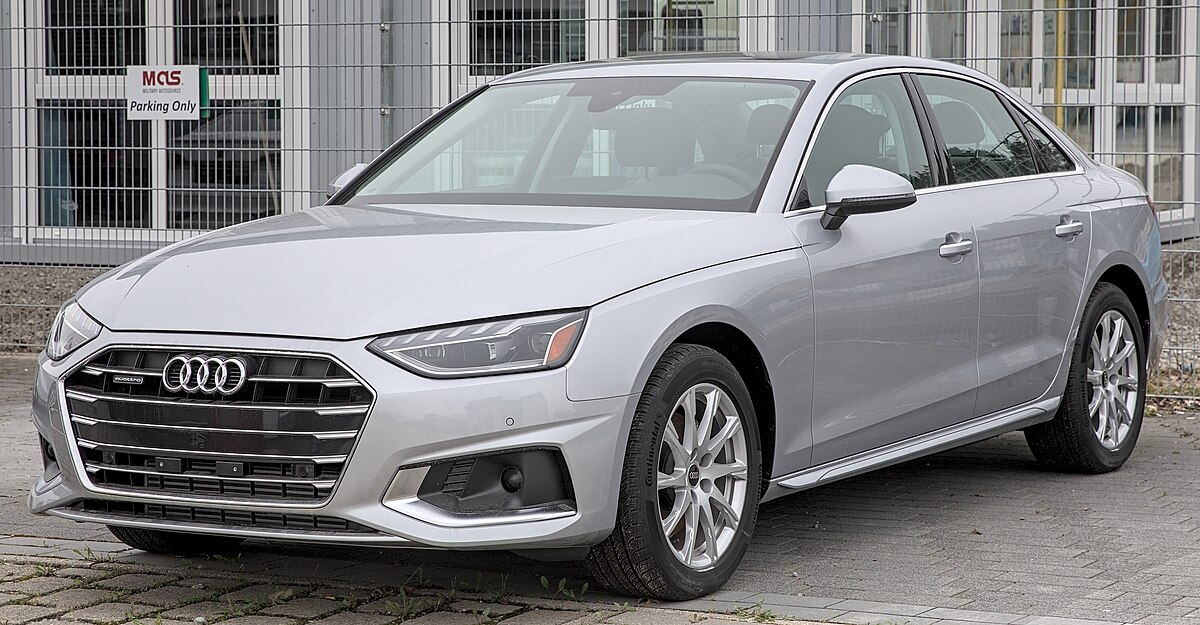Factory wheels are often marketed as durable, high-performance components engineered to match the vehicle’s design and performance.
But not all factory rims are created equal. In fact, some are far more prone to bending, cracking, or warping even under moderate real-world driving conditions like potholes, curbs, and uneven terrain.
On the other hand, some OEM wheels are engineered to withstand serious abuse, absorbing punishment without permanent damage—a rare quality that’s especially appreciated by drivers in harsher climates or off-road scenarios.
This article explores both ends of the spectrum. We begin by looking at five factory rims that are notorious for bending easily. These aren’t necessarily from unreliable manufacturers—in fact, many come from premium or performance-oriented brands.
Their susceptibility usually stems from low-profile tire setups, thinner aluminum alloy materials, or aesthetic-first designs that compromise long-term durability.
Then we’ll shift gears to five vehicles equipped with rims known for their resilience. These tougher wheels might not always look flashy, but they’re built to take real damage before failing—ideal for rough roads, inclement weather, or simply peace of mind.
Whether you’re a city commuter dodging potholes or an enthusiast chasing corners, understanding rim durability can save you money, downtime, and headaches in the long run.
Also Read: 5 Cabin Air Filters Placed For Easy Access And 5 That Require Disassembly
5 Factory Rims That Bend Easily
Factory rims are designed to strike a balance between style, performance, and cost, but sometimes that balance tips too far toward aesthetics and weight savings at the expense of durability.
The result? Wheels that bend easily when subjected to common driving hazards like potholes, curb impacts, or rough road surfaces.
While it’s tempting to blame poor manufacturing, the issue often lies in the rim’s design parameters, material choices, and the tire setups they’re paired with.
Many modern vehicles, especially those in the luxury or sports segments, come with larger diameter rims paired with low-profile tires. These setups look aggressive and provide sharper handling but offer less cushioning from road imperfections.
The thinner tire sidewalls transfer more impact force directly to the rim, increasing the risk of bending. Additionally, some rims prioritize lightweight construction using thinner aluminum alloys or more intricate spoke designs that, while visually appealing, sacrifice structural rigidity.
It’s also important to consider that rim damage can be influenced by driving style and road conditions, but even careful drivers can find their factory rims bending unexpectedly on poorly maintained roads. This leads to the frustration of costly repairs, alignment issues, and sometimes the need for rim replacement.
In this section, we’ll examine five factory rims from different manufacturers and models that have earned reputations for bending easily.
Understanding the specific vulnerabilities of these rims can help drivers anticipate potential issues, make informed decisions on tire and rim combinations, and consider aftermarket alternatives if durability is a priority.
By exploring these rims, you’ll gain insight into how design, materials, and vehicle intent influence wheel durability, equipping you with knowledge to better protect your investment on the road.
1. 2016–2021 Mercedes-Benz C-Class (W205) — 18 to 19-inch AMG Wheels
The Mercedes-Benz C-Class W205, especially with AMG packages, comes equipped with large 18- or 19-inch factory alloy wheels designed to enhance the vehicle’s sporty appearance and handling.
While these wheels are undeniably stylish, they have gained a reputation among owners and mechanics for bending relatively easily, especially on rough urban roads with potholes or sudden curb impacts.
One primary reason is the combination of the wheel size and low-profile tires. The C-Class AMG wheels are paired with tires that have short sidewalls, which reduce the cushioning effect between the rim and road.
This lack of buffer means impacts from potholes or road debris are transmitted directly to the wheel itself.
Despite being made from a high-quality aluminum alloy, the rims are engineered with thin spokes and intricate designs that emphasize style and weight reduction over ruggedness.
Many C-Class owners have reported bent wheels even under cautious driving conditions, leading to vibrations, air leaks, and steering instability. The repair cost can be significant since bent alloy wheels often need professional straightening or replacement.
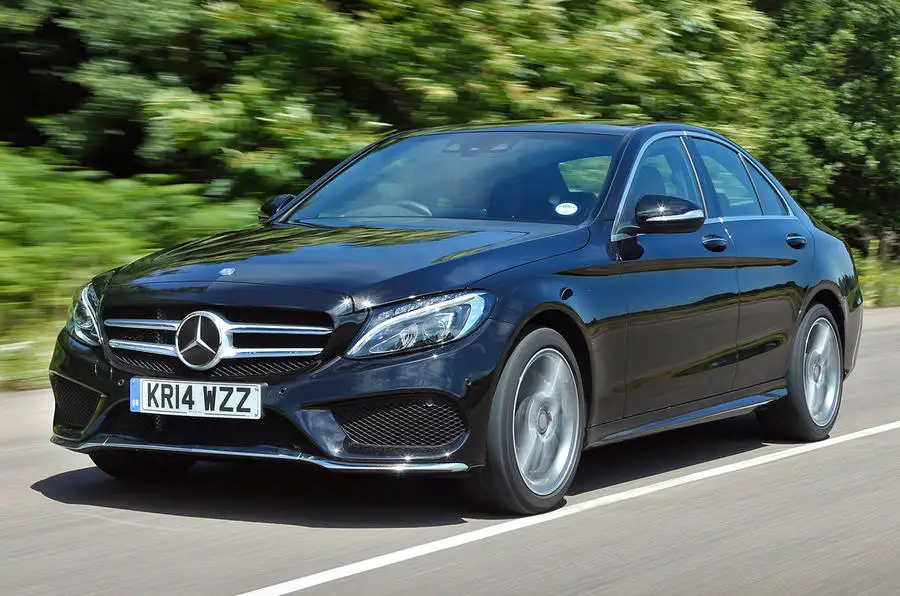
Moreover, Mercedes’ original equipment manufacturer (OEM) wheels are costly to replace, and aftermarket options can be limited or expensive.
The issue is particularly prevalent in urban environments with deteriorating road conditions, emphasizing how the design compromises durability in favor of aesthetics and performance handling.
In conclusion, while the Mercedes-Benz C-Class AMG wheels deliver excellent road feel and aggressive looks, they are less forgiving of everyday road hazards.
Drivers who frequently encounter rough roads or potholes might consider investing in tires with higher sidewalls or reinforced rims to avoid costly repairs.
2. 2015–2019 Ford Mustang GT — 19-inch Factory Rims
The Ford Mustang GT is an iconic American muscle car known for its aggressive styling and spirited performance. From 2015 to 2019, many Mustangs came with 19-inch factory rims that have been noted for their tendency to bend easily, particularly in cities with rough roads or heavy potholes.
The Mustang’s factory wheels are made from cast aluminum alloy and feature bold, wide spokes meant to evoke muscular aesthetics.
However, the design’s emphasis on looks and weight savings means these rims lack the structural thickness and reinforcement that can absorb heavy impacts.
Combined with low-profile performance tires, the rims are highly susceptible to bends or dings when hitting sharp curbs or potholes at moderate speeds.
Owners and aftermarket specialists alike have noted that bent rims are a common issue, often causing vibration in the steering wheel or uneven tire wear. Because these wheels are integral to the Mustang’s handling, a bent rim can significantly degrade driving quality and safety.
Another factor contributing to the ease of rim bending is the Mustang’s relatively stiff suspension setup. While great for cornering and responsiveness, it transmits more impact force directly to the wheels, which increases stress on the rims during everyday driving.
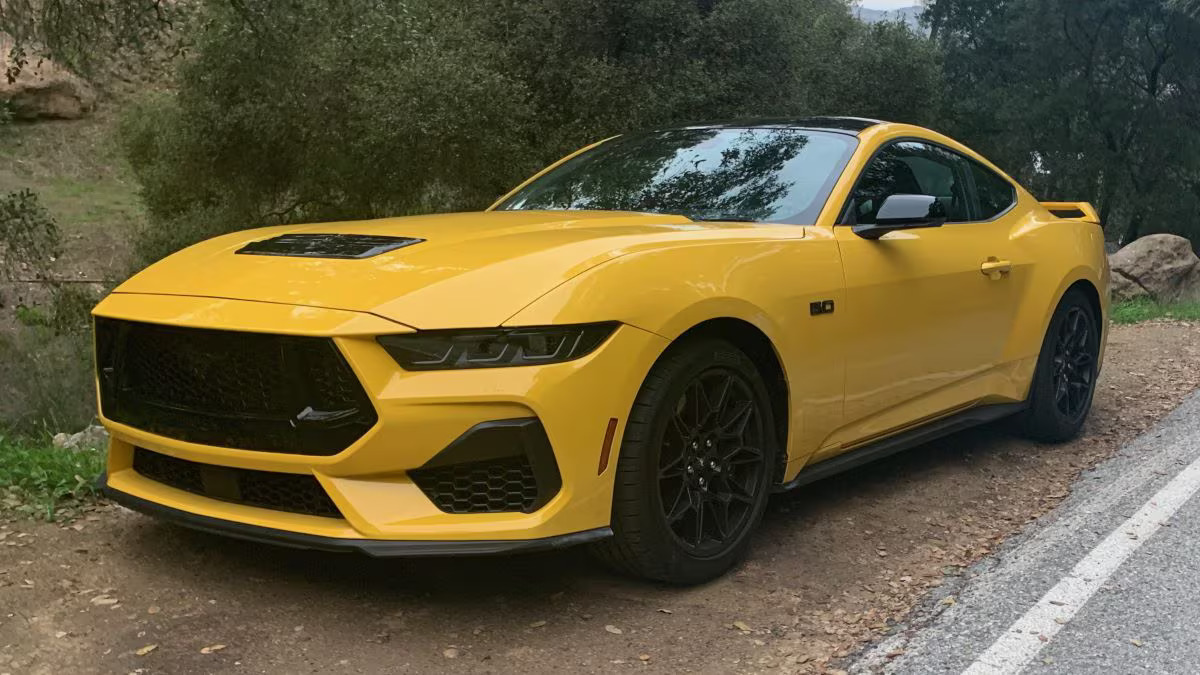
Repairing or replacing Mustang factory rims is not cheap, with OEM parts commanding a premium. Some owners have moved to aftermarket rims with thicker designs or switched to slightly smaller wheel sizes to reduce the risk of damage.
In summary, Mustang GT owners should be cautious on rough roads, and consider more robust tires or alternative wheel setups if durability is a priority over factory styling.
3. 2018–2022 Tesla Model 3 — 18- and 20-inch Aero Wheels
The Tesla Model 3 has revolutionized electric vehicle ownership with its minimalist design and tech-forward features, but its factory wheels have come under scrutiny for their fragility.
The 18-inch and especially the 20-inch “Sport” wheels fitted to the Model 3 are known to bend relatively easily under everyday driving conditions, such as potholes or aggressive curb impacts.
Tesla’s lightweight approach to rim design prioritizes range and efficiency, using thin-spoked aluminum alloys to minimize rolling resistance and weight. However, this emphasis on weight savings comes at the expense of wheel toughness.
The 20-inch Sport wheels, often paired with ultra-low-profile tires, are particularly vulnerable since the thin tire sidewalls offer minimal shock absorption.
Many Model 3 owners in regions with harsh winter roads or uneven surfaces have reported bent rims after encounters with potholes or even speed bumps.
The consequences include vibrations, compromised tire seals, and sometimes sensor malfunctions related to the vehicle’s advanced wheel and brake monitoring systems.
Tesla’s wheel repair or replacement costs can be substantial, with OEM rims priced steeply and specialty sensors sometimes needing recalibration after damage.

Additionally, the electric vehicle’s immediate torque delivery can exacerbate wheel stress during acceleration, placing additional strain on rims not designed for heavy impact absorption.
While Tesla’s wheels offer aerodynamic and performance benefits, the trade-off is a higher risk of damage in real-world conditions. Prospective owners in areas with poor roads should consider adding protective tire pressure monitoring, investing in reinforced tires, or exploring aftermarket rim options built for durability.
4. 2017–2021 Audi A4 and S4 — 18- and 19-inch Factory Wheels
Audi’s A4 and S4 sedans from 2017 to 2021 came with stylish factory alloy wheels in 18- and 19-inch sizes, praised for their performance and design but criticized for their fragility. These rims often bend easily, especially when subjected to typical road hazards like potholes or curbs.
The issue stems partly from the wheels’ thin-spoke designs and lightweight aluminum alloys engineered to meet Audi’s premium performance and handling expectations. While visually appealing and contributing to a sporty stance, these rims sacrifice thickness and rigidity.
Paired with low-profile tires for enhanced grip and responsiveness, the wheels lack sufficient cushioning to absorb impacts. As a result, even moderate bumps can result in bent rims, leading to vibration, air leaks, and steering feedback issues.
Audi owners have frequently reported bent rims as a maintenance headache, particularly in cities with rough infrastructure or during winter months with salt and ice contributing to road deterioration.
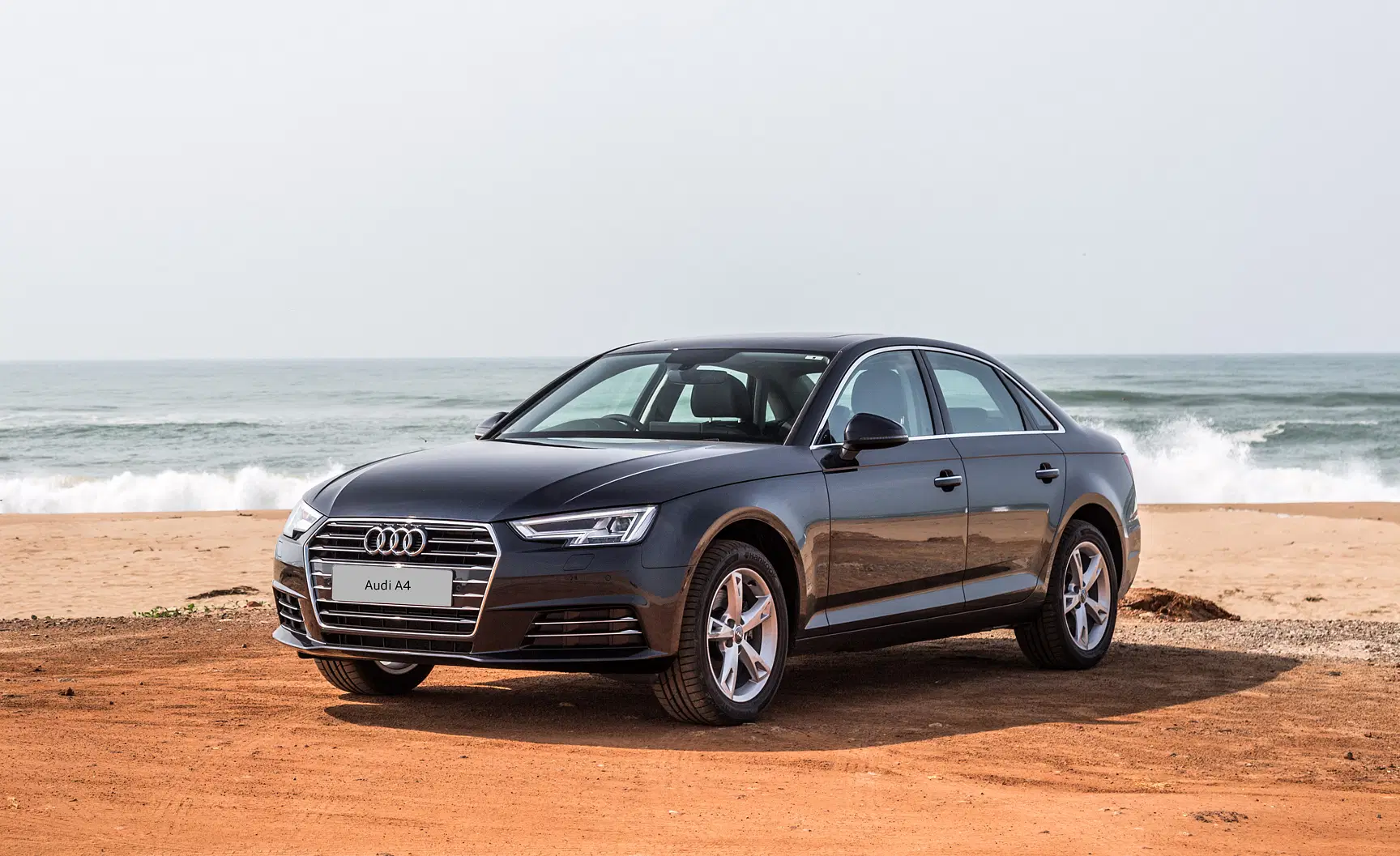
Repairing or replacing these wheels can be expensive. Audi OEM rims command high prices, and bent rims often require specialized wheel straightening services or outright replacement.
In summary, while Audi’s factory rims on the A4 and S4 deliver excellent driving dynamics and a refined appearance, their susceptibility to bending is a downside many owners face.
Drivers who prioritize durability may want to consider alternate wheels or tire combinations better suited for rough roads.
5. 2019–Present Jaguar XE — 18- and 19-inch Factory Alloy Wheels
The Jaguar XE is a compact luxury sedan that combines British craftsmanship with sporty dynamics. Its 18- and 19-inch factory alloy wheels, while elegant and lightweight, have shown a tendency to bend easily under real-world driving conditions such as potholes and curb impacts.
Jaguar’s wheel design for the XE prioritizes aesthetics and weight reduction, using thin-spoked alloys that look sleek but are more vulnerable to deformation. The combination with low-profile tires further compounds the issue by providing minimal shock absorption between the rim and road.
Owners driving in urban areas with poor road conditions frequently report bent rims, which cause vibrations, compromised tire pressure seals, and uneven tire wear. Additionally, bent wheels can interfere with the vehicle’s precise suspension calibration, impacting handling performance.
Jaguar’s OEM rims are costly to replace, and specialized repair shops are often required to straighten bent wheels properly. The prevalence of wheel damage on the XE highlights the trade-offs manufacturers make between style, performance, and durability.
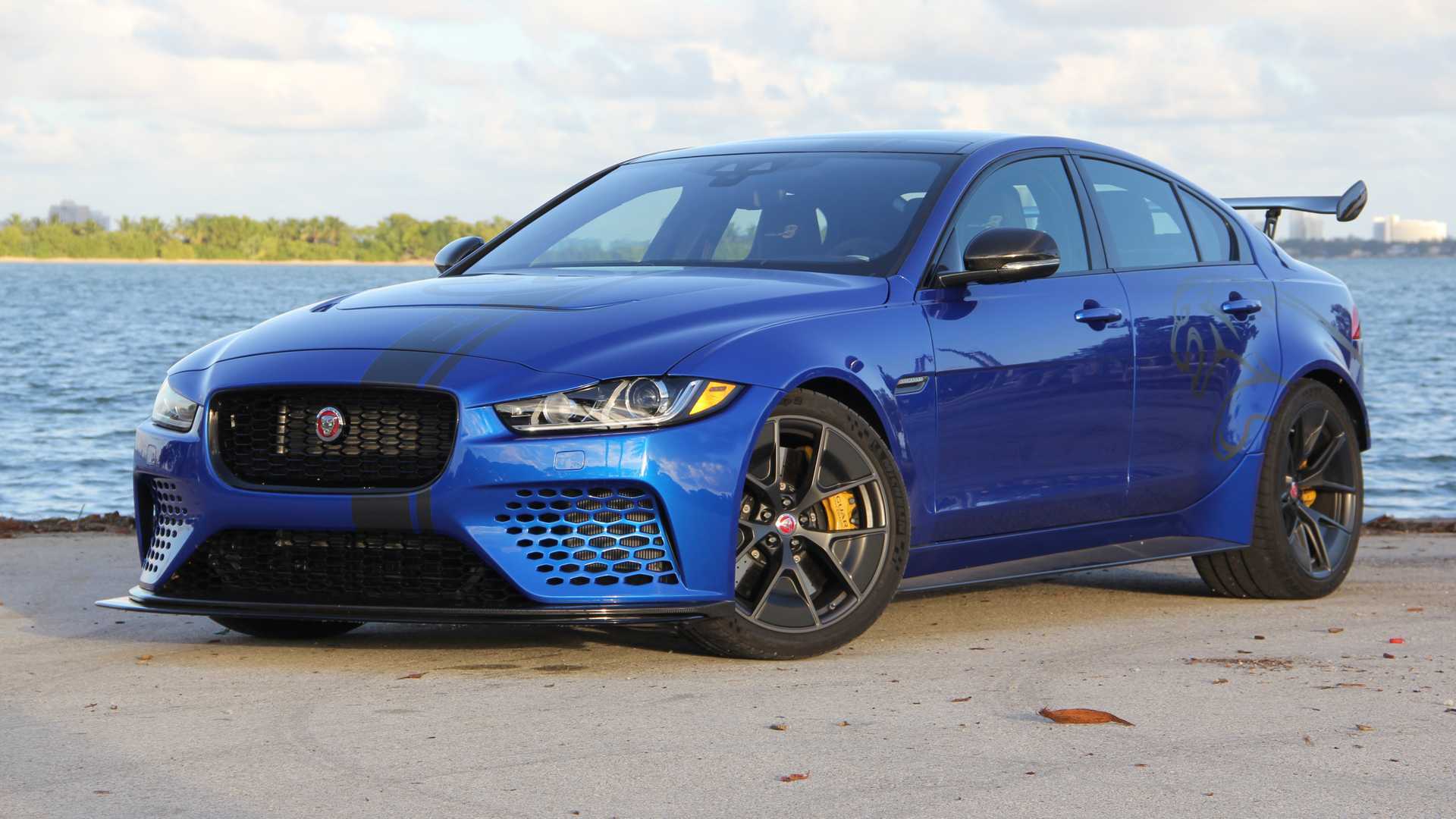
For owners, protecting these wheels with higher-profile tires or avoiding potholes where possible is essential. Those who regularly drive on rough roads might consider aftermarket rims designed for extra strength or using wheel protectors to mitigate damage.
5 Factory Rims That Take Real Damage
While some factory rims tend to bend easily under everyday driving hazards, there are others that stand up to rough conditions but suffer from a different type of vulnerability: they take real damage from impacts, resulting in severe cracks, chips, or even complete structural failure.
These rims often look robust at first glance, designed with thicker spokes or more solid construction, but their materials or manufacturing methods sometimes can’t withstand sustained abuse or harsher collisions.
Rims that take real damage may not bend as readily as weaker counterparts, but when they fail, the consequences are often more serious and costly.
Cracked or fractured rims are dangerous because they compromise the wheel’s integrity, risking sudden air loss or failure at high speeds. Repairing these damages is often more complicated, sometimes impossible, and replacement is typically expensive.
Such rims are often found on vehicles designed for performance or luxury, where the wheels balance aesthetics, weight, and strength—but can be vulnerable to real damage when the limits are exceeded. They might fare better on occasional bumps, but repeated or harsher impacts from potholes, road debris, or curbs cause serious harm.
This section explores five factory rims known for taking real damage rather than bending. By understanding the characteristics and failure modes of these rims, drivers can better appreciate the risks and take preventive measures, such as selecting the right tires, moderating driving on rough roads, or considering aftermarket options designed for higher durability.
Ultimately, rims that take real damage highlight a different aspect of wheel durability—strength that can turn brittle under pressure—underscoring the importance of both design and material choices in factory wheel manufacturing.
1. 2017–2022 BMW 5 Series (G30) — 18- and 19-inch M Sport Alloy Wheels
The BMW 5 Series G30 generation offers a blend of luxury and sportiness, and its M Sport package includes aggressive 18- and 19-inch alloy wheels that visually enhance its dynamic character.
These wheels are built with thicker spokes and a sturdy design that projects durability and strength.
However, many owners and industry reports have revealed that while these rims resist bending, they tend to suffer from real damage such as cracks and chips when subjected to harder impacts.
BMW’s use of forged aluminum alloys in the 5 Series M Sport wheels gives them rigidity but can also make them more brittle under sudden, severe shocks.
Unlike thinner, more flexible rims that bend and absorb some impact energy, these wheels sometimes crack instead. This type of damage is more dangerous since cracks can propagate over time, leading to sudden air loss or complete wheel failure.
Owners driving on rough or pothole-heavy roads often report issues with rim fractures after hard hits, especially near the wheel’s bead seat or spoke junctions. Repairing cracked forged wheels is complicated and expensive, often requiring specialized welding and refinishing or full replacement.
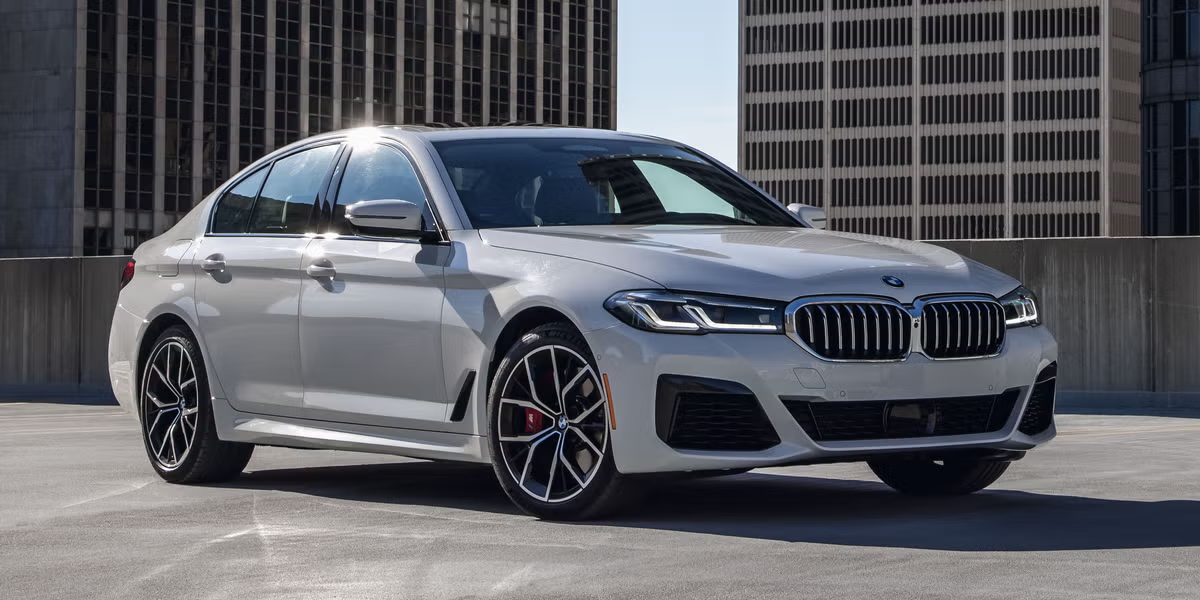
Furthermore, the 5 Series M Sport wheels are integral to the car’s performance setup, and compromised rims degrade the precise handling BMW is known for.
The risk is compounded by the fact that replacement OEM wheels are costly, and insurance claims for such damage may not always be covered if the damage is deemed driver negligence.
BMW’s 5 Series M Sport rims are an example of how wheels designed for strength can suffer from brittle failure modes under real-world stresses, making it critical for owners to inspect rims regularly and avoid harsh impacts where possible.
2. 2018–2022 Range Rover Velar — 20- and 21-inch Alloy Wheels
The Range Rover Velar is a luxury SUV that combines off-road capability with high-end design. Its large 20- and 21-inch factory alloy wheels are designed to complement the vehicle’s rugged yet refined aesthetic.
These wheels are constructed to withstand off-road conditions but have shown a tendency to take real damage such as cracks and deep chips under hard impacts rather than bending.
Range Rover wheels are typically made with cast aluminum alloys, which provide a balance between weight and strength.
However, cast wheels are more prone to cracking under severe shocks compared to forged wheels. When Velar owners hit large potholes, rocks, or curbs aggressively, the wheels sometimes develop fractures in the spokes or the rim barrel.
This damage can lead to unsafe driving conditions due to sudden air loss or reduced structural integrity. Repairing cast alloy wheels is tricky; cracks may require welding or patching, which might not restore full strength and can be costly. In many cases, complete wheel replacement is recommended.

The Velar’s combination of large wheels with low-profile tires leaves little room for impact absorption, increasing the likelihood of such damage. Despite its off-road credentials, the Velar’s factory rims are best protected by cautious driving and avoiding excessive impacts.
Owners should consider reinforced or aftermarket wheels if regularly driving on rough terrain or poor roads, as the factory rims’ brittle failure pattern is a notable vulnerability for this luxury SUV.
3. 2020–Present Audi Q7 — 20- and 21-inch Factory Alloy Wheels
Audi’s flagship SUV, the Q7, is equipped with large factory alloy wheels that emphasize style and performance. The 20- and 21-inch rims offer a commanding presence but are reported to take significant damage like cracks or fractures when subjected to heavy impacts.
Audi typically uses cast aluminum alloys for the Q7’s wheels, optimized for lightness and premium finish. While the wheels resist bending, they are susceptible to cracks when encountering sharp or severe potholes and curbs. This brittle damage mode can be dangerous and expensive to fix.
Q7 owners frequently report needing rim replacements due to damage that compromises the air seal or causes vibrations. Repairs require expert welding and inspection, and replacement wheels are expensive due to Audi’s premium pricing.
The vehicle’s advanced suspension and tire pressure monitoring systems may detect issues stemming from rim damage, alerting drivers to unsafe conditions. This makes prompt inspection after impacts critical.
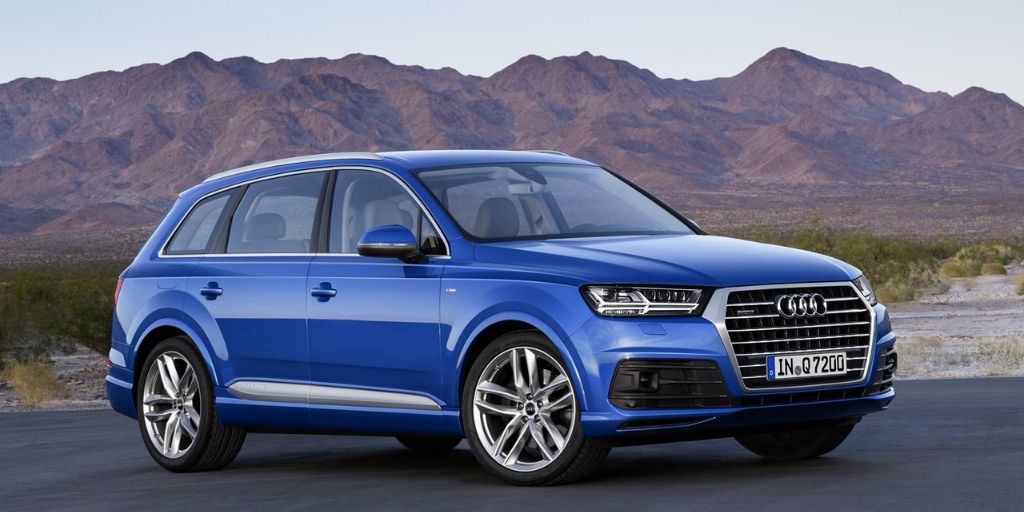
For drivers in areas with rough roads, Audi’s Q7 factory rims require careful protection and possibly upgrading to more robust aftermarket wheels designed for durability under harsher conditions.
4. 2019–Present Porsche Cayenne — 20- and 21-inch Alloy Wheels
The Porsche Cayenne is a luxury performance SUV that combines sportscar dynamics with SUV practicality. Its large 20- and 21-inch factory alloy wheels are engineered for high performance but have been noted to take real damage such as cracks and deep chips after impacts.
Porsche’s wheels for the Cayenne are forged aluminum alloys, which are lightweight and strong but can suffer brittle failure under extreme shocks. Unlike rims that bend, these wheels tend to crack or chip under sudden impacts from potholes or curbs.
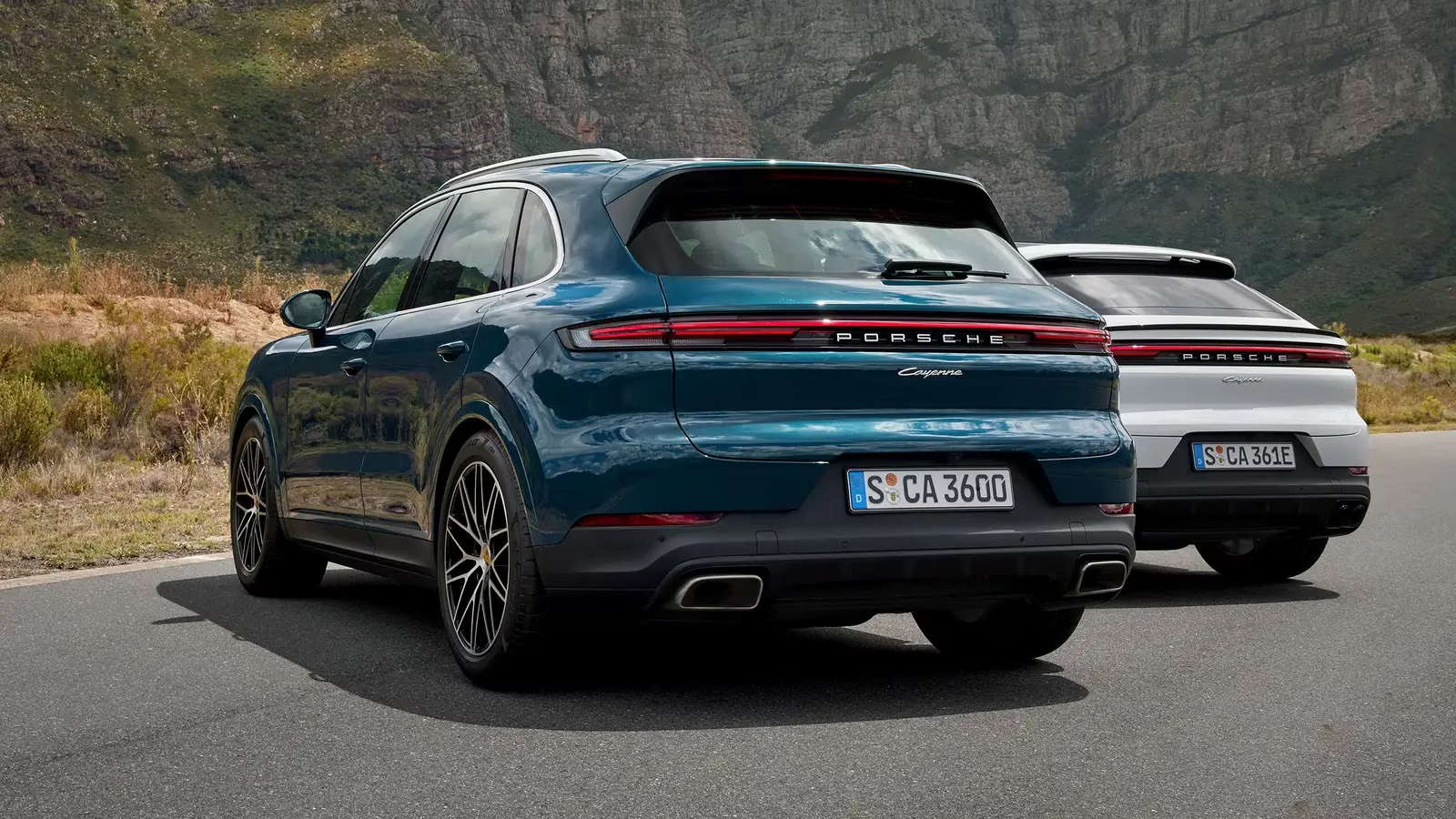
Owners have reported fractures near the spokes and rim lip after hitting rough road hazards, which compromises safety and ride quality. Due to the high cost of replacement Porsche OEM rims and the complexity of repairs, this damage often results in expensive maintenance.
Given the high-performance nature of the Cayenne, maintaining rim integrity is crucial for handling precision. Drivers who frequently encounter rough roads should consider reinforced or aftermarket wheel options for improved durability.
5. 2017–2021 Jaguar F-Pace — 20- and 22-inch Alloy Wheels
The Jaguar F-Pace is a luxury crossover SUV known for its stylish design and sporty performance. Its 20- and 22-inch factory alloy wheels, while visually striking and designed for performance, are reported to take real damage like cracks and chips rather than bending.
Jaguar’s wheels are typically cast alloys that balance weight and style, but the manufacturing process can leave them vulnerable to brittle failures under heavy impact. Pothole strikes or curb hits often result in cracks at critical stress points such as the spokes or wheel lip.
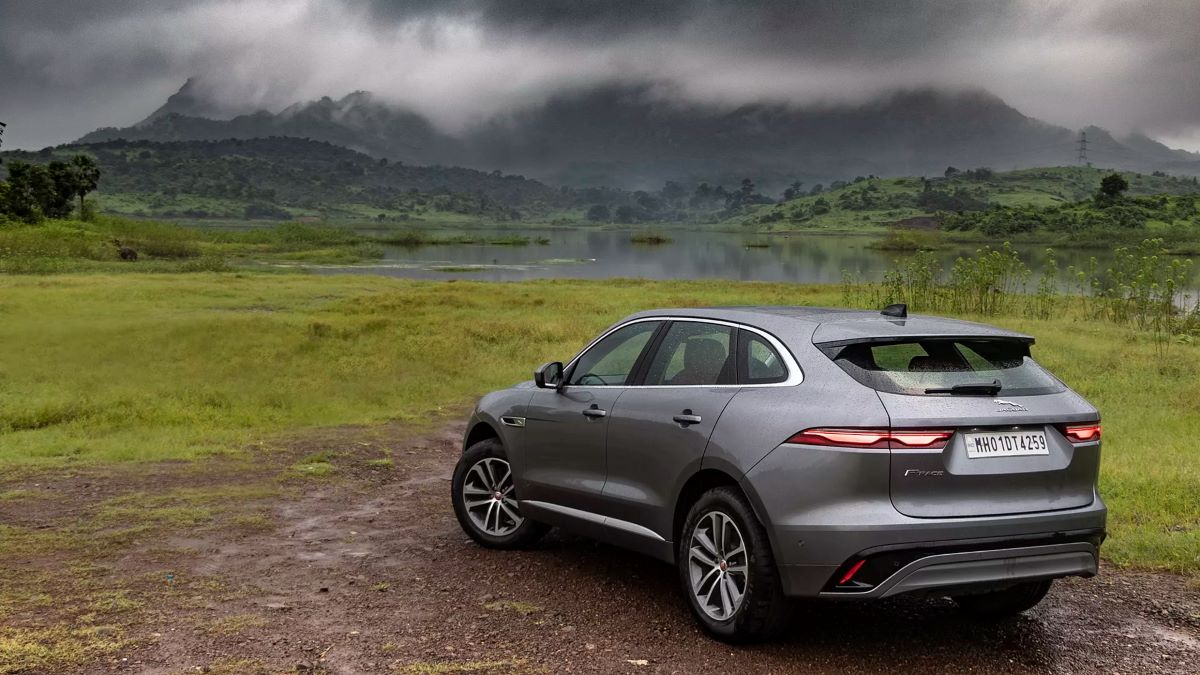
Such damage poses safety risks, including sudden tire pressure loss and compromised structural integrity. Repairs are difficult and often costly, requiring specialized work or replacement.
Owners in urban or rough-road environments should consider protective tires or alternative wheels designed for better impact resistance to avoid expensive repairs and maintain safety.
When it comes to factory rims, durability is a critical consideration that directly impacts safety, maintenance costs, and driving experience.
As we explored in this article, rims generally fall into two distinct categories based on how they respond to impacts: those that bend easily and those that take real damage such as cracks or fractures.
Rims that bend easily may seem fragile at first glance, but this flexibility can actually be a safety feature. When encountering potholes or curbs, these rims absorb the impact by bending slightly, which often prevents catastrophic failure.
Bent rims can often be repaired or realigned without the need for costly replacements. However, frequent bending can still weaken the wheel over time, so vigilance is necessary.
On the other hand, rims that take real damage tend to be made from stronger, stiffer materials such as forged aluminum alloys or certain cast designs. While they resist bending, their rigidity makes them prone to brittle failure under sudden, severe impacts.
Cracks or fractures in rims are much more dangerous than bends because they compromise structural integrity and can lead to sudden air loss or even wheel failure at high speeds. Repairing such damage is complicated, and replacement wheels for premium vehicles are often expensive.
Choosing rims with the right balance of strength and flexibility depends largely on driving conditions, vehicle type, and personal priorities.
Drivers on rough or poorly maintained roads may benefit from rims that bend to protect the wheel and tire, whereas those prioritizing performance and style may accept the risk of brittle failures with stronger rims.
Ultimately, understanding the specific vulnerabilities of your vehicle’s factory rims empowers you to take proactive steps—whether it’s cautious driving, regular inspections, or investing in aftermarket wheels built for enhanced durability.
Proper rim care not only safeguards your investment but ensures safer, more reliable driving over the long term.
Also Read: 5 Cars Where Minor Repairs Total Over $1,000 And 5 That Stay Manageable

